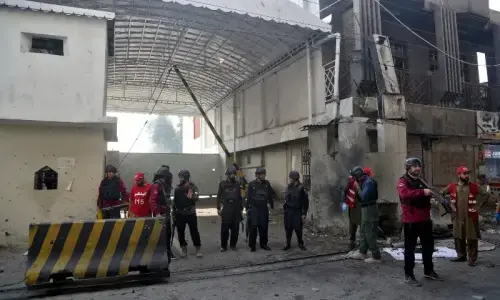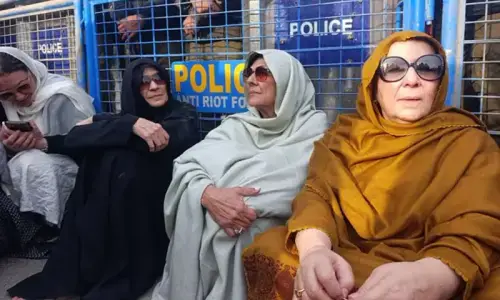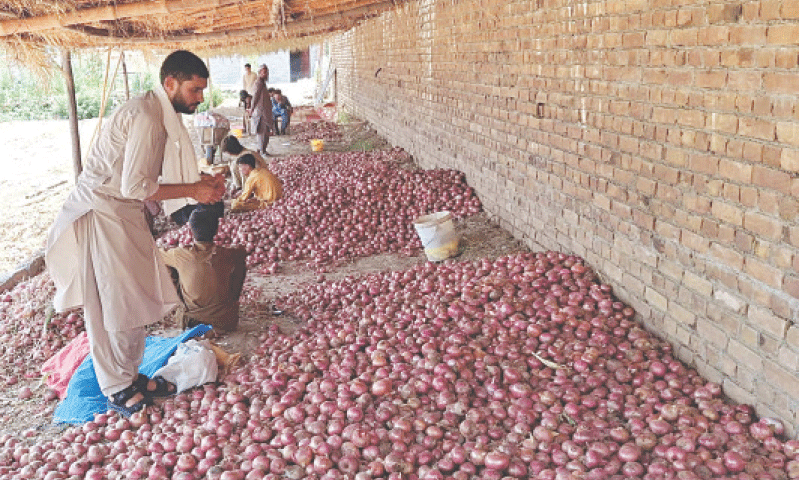
While Pakistanis may sometimes be tempted to look to the Supreme Court to divine the future of their country, there is another, perhaps even more, powerful group whose actions or inaction will in large part determine the trajectory of the country’s future.
They are Pakistan’s elite, sometimes referred to as “300” extended families who own an estimated 45 per cent of Pakistan’s cultivated land. This elite has the power to solve one of the most stubborn and fundamental problem that has crippled their country since its birth in 1947: landlessness.
An estimated 4.7 million rural families, comprising around 33 million people, are completely landless across rural Pakistan. Their lack of land rights leaves them with no pathway to escape their deep poverty – no land on which to labour for their own reward, and no opportunity to exercise any entrepreneurial spirit. Their poverty and frustration generates a vast opening for appeals by the Taliban and other extremist groups.
These 300 families could forever change the course of their country’s history, not to mention the fate of millions of their compatriots, if, as a humanitarian and patriotic action, they were to contribute just two per cent of their land holdings. That would make available some 400,000 acres for immediate allocation to Pakistan’s landless, bottom poor.
What can be done with 400,000 acres? Up to 4 million desperately poor families could become owners of house-and-garden plots averaging 1/10 acre in size. This would give the recipient families a “land base” of their own which would allow them to literally grow themselves out of abject poverty.
Historically, in many settings, house-and-garden plots, ranging anywhere from 5,000 to 10,000 square feet (1/10 acre and upward) depending on the country and locale, have offered wide benefits to the poor and landless. They have been used with great success in Sri Lanka, India, and Russia, to name a few.
They provide enough space for a family to build a very small house and engage in vegetable gardening, tree cultivation, small-scale raising of livestock, home-based businesses and other income-generating activities.
They can make a very large difference in the livelihoods and status of the poor —including the enhancement of the role and status of women, whose names should be included on the title wherever possible — while supplementing and diversifying existing livelihood strategies.
Developed with what is typically the family’s most abundant resource — their own labour — such plots have an impact that belies their small size.
They increase family income, enhance family nutrition, provide physical security, help assure access to a range of government benefits, serve as a vehicle for generating wealth, and secure the family’s status within the community.
The donated parcels in the program we are here urging upon Pakistan’s largest landowners should be of good quality, suitable for home garden cultivation and large enough to allow small communities of families to live side-by-side. (There, while cultivating individually, they can share common facilities like water wells or access roads.) Such land could provide significant supplementary nutrition (through growing vegetables and animal husbandry) to many of the most impoverished families.
At the same time, implementation of this program should cause the grievances of the previously landless to greatly diminish. Indeed, the Quran points out that Zakat — alms giving — purifies the person who receives the alms because it saves him from the humiliation of begging and prevents him from envying the rich.
Plot recipients would be linked to other government schemes (improved housing, agricultural extension, etc., and broader education and health initiatives), and to programs offered by NGOs (micro-finance, nutrition education, cooperative marketing, etc.).
What motives could catalyze such a voluntary contribution of land by the large landowners? We suggest two: first, they would be providing strategic Zakat: charity strategically aimed and timed to transform the lives of millions.
Second, it would be in their own self-interest, as they would benefit from both the immediately increased stability and the long-term economic growth promoted by more widespread land ownership.
Throughout history, land distribution programs have proven effective in providing the basis for economic development and for stripping insurgencies of popular support. Successful examples where then-developing countries used land distribution to gain public support, spur rural economic development, and promote political stability through grassroots empowerment include Japan, Taiwan, South Korea, and El Salvador. And assuredly, in Pakistan, the goals of rural stability and rural development will remain distant ones unless the land tenure issue can be addressed.
Within Pakistan, the Government of Punjab is implementing a house-and-garden plot pilot program at 10 locations in four districts. In India, several states have adopted schemes on a significant scale to provide such plots to poor rural households. The Government of India has called for the widespread allocation of such plots to the landless in the country’s Eleventh Five-Year Plan (2008-2012).
Indeed, starting more than 50 years ago, the Bhoodan movement in India led many wealthy landowners to give a portion of their land to the lower castes. Millions of acres have been distributed as a result. Would Pakistan’s largest landowners do the same to the tune of 400,000 acres?
Roy Prosterman is founder and president emeritus of Landesa, a global development non-profit that works to secure land rights for the world’s poor, and Professor Emeritus of Law at the University of Washington. Darryl Vhugen is a senior attorney and land rights specialist with Landesa. Follow us @Landesa_Global






























